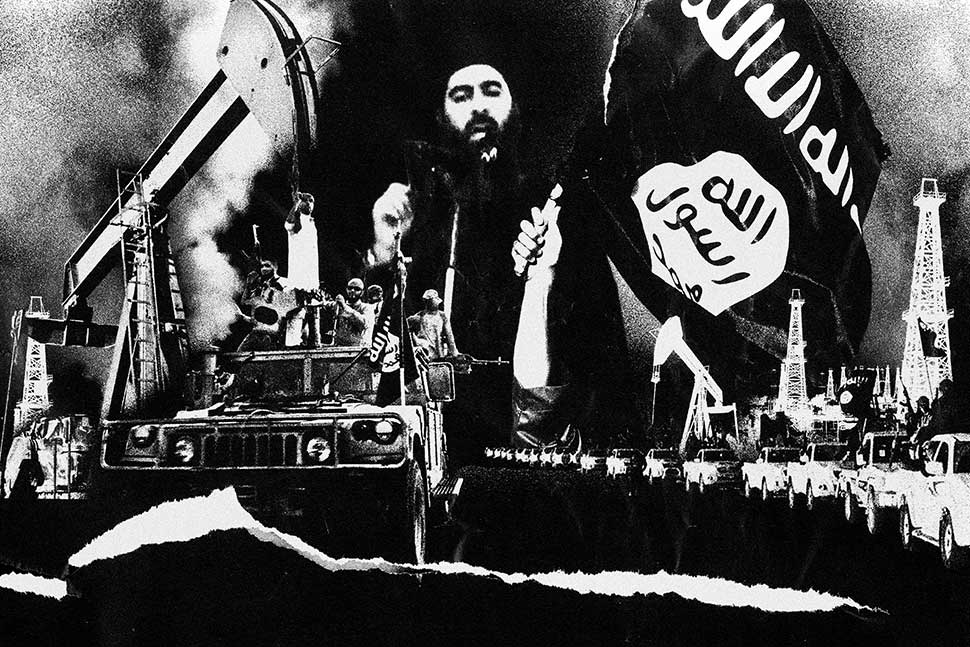Since it swept across northern Iraq in early June, capturing towns, refineries, and oil wells along the way, the terrorist group calling itself Islamic State may be making more money than any other terrorist group, according to U.S. intelligence officials and antiterrorism finance experts. While al-Qaeda, Hezbollah, and Hamas depend on the kindness of wealthy sympathizers and state sponsors, Islamic State finances itself almost entirely through revenue from extortion, taxes, and especially illicit oil sales. “Islamic State is probably the wealthiest terrorist group we’ve ever known,” says Matthew Levitt, a former U.S. Department of the Treasury official who directs the counterterrorism and intelligence program at the Washington Institute for Near East Policy.
The Taliban has made money smuggling opium out of Afghanistan, and the Revolutionary Armed Forces of Colombia (FARC) supports itself in part by selling cocaine and kidnapping for ransom. But those efforts pale in comparison to the money Islamic State is estimated to be bringing in through an oil-smuggling network stretching across a large swath of the Middle East. A United Nations report calculated that the Taliban raised about $400 million in 2011—more than $1 million a day. U.S. officials and terrorism experts believe that by late June, Islamic State was raising as much as $2 million a day in petroleum revenue—though that amount is declining as it loses control of some oil fields and authorities crack down on cross-border smuggling.
Once known as Islamic State in Iraq and the Levant (ISIL), the organization shortened its name to Islamic State at the end of June when it declared it was the caliphate, to which it claims all Muslims must pay homage. Over the past year, the group has gained control of oil fields in Iraq and Syria, giving it access to thousands of barrels a day that it sells on the black market.
Most of the group’s oil flows through local middlemen and is paid for almost entirely in cash, making the transactions extremely difficult to track. That insulates Islamic State from traditional methods used to dry up terrorist funds, such as international banking sanctions and anti-money-laundering laws. Al-Qaeda’s founder, Osama bin Laden, the scion of a wealthy and well-connected Saudi-Yemeni family, enjoyed the assistance of a network of foreign patrons—with overseas bank accounts. Authorities were thus able to squeeze al-Qaeda’s donors. Islamic State’s predominantly local revenue stream poses a unique challenge to governments seeking to halt the militants’ advance. Islamic State is “not as integrated with the international financial system,” Levitt says, “and therefore not as vulnerable.”
Continue reading @Businessweek

